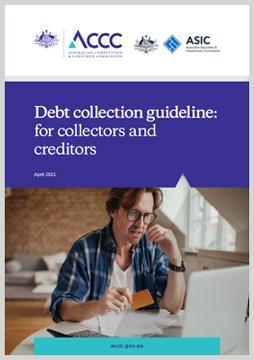
People who owe money are commonly referred to as debtors.
Debtors, and others connected to a debt, should be treated with fairness, respect and courtesy.
A debt collector should only contact a debtor for a reasonable purpose and only when necessary.
Watch the video for information about what debt collectors can and can't do.
The story, all names, characters, and incidents portrayed in this video are fictitious. No identification with actual persons (living or deceased), places, buildings, and products is intended or should be inferred.
Under Australian law, a debt collector must not:
These laws also apply when contacting anyone connected to a debtor. This includes a spouse, partner or family member.
Report assault or threats of violence to the police.
Debt collectors must protect the personal information of debtors and third parties. Contact the Office of the Australian Information Commissioner if a debt collector or creditor has broken privacy laws.
There are situations where contacting a debtor may be reasonable.
Contact with a debtor should be limited to:
Contact by telephone
Maximum 3 phone calls a week or 10 a month
Monday to Friday
Monday to Friday
Visits to a debtor’s home, or another agreed location, should be a last resort. The debtor can also ask for, or agree to, a visit.
If repayment plans can be worked out over the phone or in writing, face-to-face contact should not be needed.
We review reports from consumers and small business and take action when we identify concerning practices.
Guideline for collectors and creditors
The ACCC and ASIC have jointly produced this guideline to assist creditors, collectors and debtors understand their rights and obligations. It helps make sure that debt collection activity is consistent with consumer protection laws.